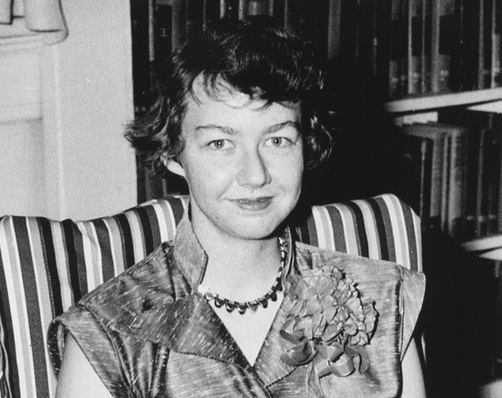
For many years, Flannery O’Connor maintained a correspondence with Cecil Dawkins, a southern English professor and fiction writer. Although the two were roughly the same age, Dawkins looked up to O’Connor as something of a mentor, who would often write to her with advice about the craft. Below, O’Connor shares with Dawkins details of her own writing routines.
27 October 1957
Thanks so much for the picture. One of these days I’ll send you one of me and two of my friends but my friend are not very cooperative about having their pictures struck—don’t like to be seen with me or something.
I have heard that Katherine Anne Porter writes her stories in her head before she puts them down but I always tend to think such reports are exaggerated, perhaps just because they don’t fit in with what I find I can do. I always have an idea of what I want to do when I write a story, but whether I’ll be able to remains always to be seen. I am writing a story now and have proceeded at a regular rate of two pages a day, following my nose more or less. They have to work out some way or other, and I think you discover a good deal more in the process when you don’t have too definite ideas about what you want to do. That is interesting about your reading some Shakespeare to limber up your language before you start; though I think that anything that makes you overly conscious of the language is bad for the story usually.
Your schedule sounds horrible and I suppose the worst of such a job is that something extra is always coming up. I find girls of that age awfully hard to talk to. I lectured at Wesleyan College in Macon last year and as a result some of their students who have a vague urge to “express themselves” began to come regularly to see me. When they appear, they do all the talking and they have fantastic but very positive ideas about how everything is and ought to be; and they are mighty sophisticated on the outside. The visits leave me exhausted and yearning to go sit with the chickens.
Anything having to do with this “learning for life” stuff turns my stomach permanently. I had to attend a “progressive” high school here, one of those connected with a teachers’ college. In the summer all the teachers went to T.C. and sat at the feet of an old boy named William Heard Kilpatrick and those who couldn’t afford that went to Peabody and sat at the feet of somebody who had sat at the feet of William Heard Kilpatrick. In the winter they returned and asked us what, as mature children, we thought we ought to study. At that school we were always “planning.” They would as soon have given us arsenic in the drinking fountains as let us study Greek. I know no history whatsoever. We studied that hindside foremost, beginning with the daily paper and tracing problems from it backward…
From The Habit of Being: Letters of Flannery O’Connor. Edited by Sally Gitzgerald. New York: Vintage Books, 1979. pp.248-9.


